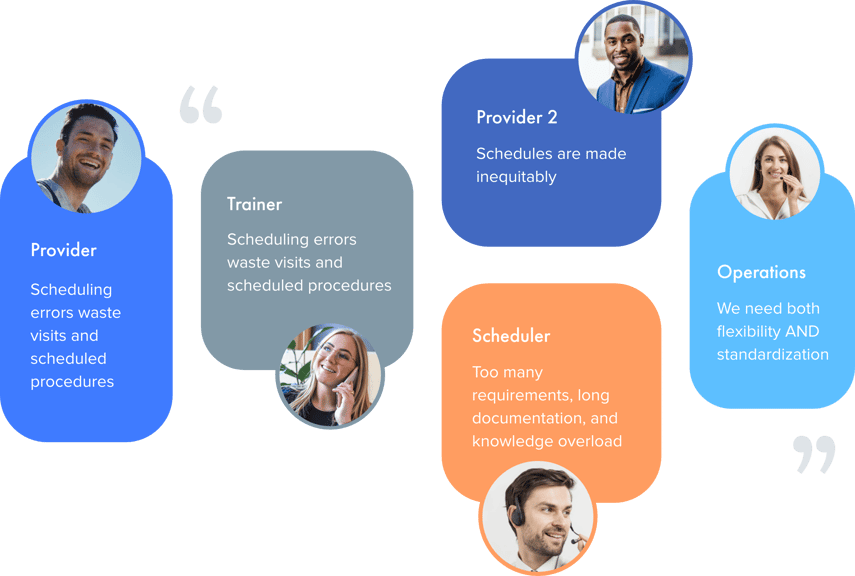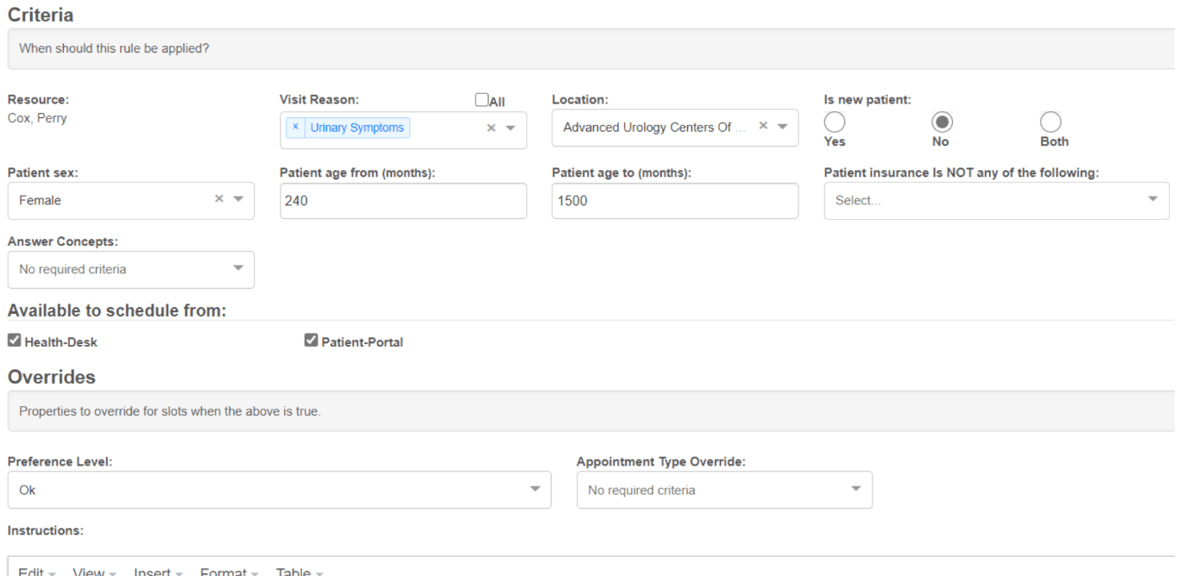
Intelligent Scheduling White Paper
Give your staff the scheduling support they deserve. Doing so improves revenue, removes scheduling errors, and makes patients happy. Scheduling is the lifeblood of healthcare organizations – the crucial link that is unfortunately also very complicated.
Due to the Law of Scheduling every organization with complex scheduling is torn between standardizing by enforcing a one-size-fits-all approach or dealing with inefficiency, errors, and expense. With Intelligent Scheduling, you can achieve flexible standardization! Meet your efficiency goals while allowing for variation between providers and patients.
TAKE THIS RESOURCE WITH YOU
Problems

How to Schedule more Effectively
The logic undergirding the intelligent scheduling/referral system is incredibly robust. It follows the following logic sequence:

a. If a disposition is available, that is considered as well
b. Patient demographics
c. Patient Insurance
d. Prior visits may be used to calculate appropriate timeframes
a. Services the resource offers / is required for
b. Multiple Resources needed for a schedule are automatically included
c. Service provider schedule
d. Service provider preferences
e. Provider relationships for availability and backup options
a. Sequences can be defined (e.g. pre-op, op, and post-op)
b. Each appointment in the sequence can involve multiple resources, each with its own requirements
c. Buffer between visits and/or buffer ranges between visits in a sequence can be specified

The Results
Schedule recommendations that fit the issue and symptoms, prioritize close proximity, is optimized for provider preferences, is equally distributed by Round Robin, and still gives patients a choice for what best fits their needs and schedule. Talk about removing the scheduling pains from your staff!
Simple Interface
The enormous complexity is hidden behind a deceptively simple user interface for agent or nurse workspaces.
Sequential Appointment Scheduling
Scheduling sequential visits that follows all your requirements is incredibly simple.
![]() Scheduling new appointments
Scheduling new appointments![]() Cancel existing appointments
Cancel existing appointments![]() Schedule multi-resource appointments, where multiple resources are needed in the same appointment
Schedule multi-resource appointments, where multiple resources are needed in the same appointment![]() Schedule sequential appointments, where a series of appointments are needed in order (e.g. pre-op, op, and post-op)
Schedule sequential appointments, where a series of appointments are needed in order (e.g. pre-op, op, and post-op)![]() Overbooking existing appointments to squeeze in urgent cases
Overbooking existing appointments to squeeze in urgent cases![]() Reschedule appointments
Reschedule appointments
a. Taking into account the full logic and context when the appointment was first scheduled.
b. e.g. rescheduling a post-op that is part of a sequence takes into account the date/time of the operation,
its location, the resources involved, and the buffer needed between appointments
Benefits
Reduce training time by 50-70%
Nearly eliminate scheduling errors
Self-administer schedules in real-time
No Scheduling Requirements are Too Complex!
So how complex can these rules handle?
Those who don’t schedule appointments regularly don’t appreciate how quickly scheduling complexity grows.

Take one mental health practice as an example. They have 72 primary diagnosis and 73 secondary diagnosis possibilities that combined determined the visit type. In addition, they have 4 service types, different rules for established vs new patients, and 160 provider preferences to account for. The total individual combinations is nearly 7 million!
Self-Administer
The parameters for all of the above are available for you to setup and administer yourself – in real time. Once a change is made in the admin, it immediately changes all schedules in the contact center and patient self-scheduling on the web.


